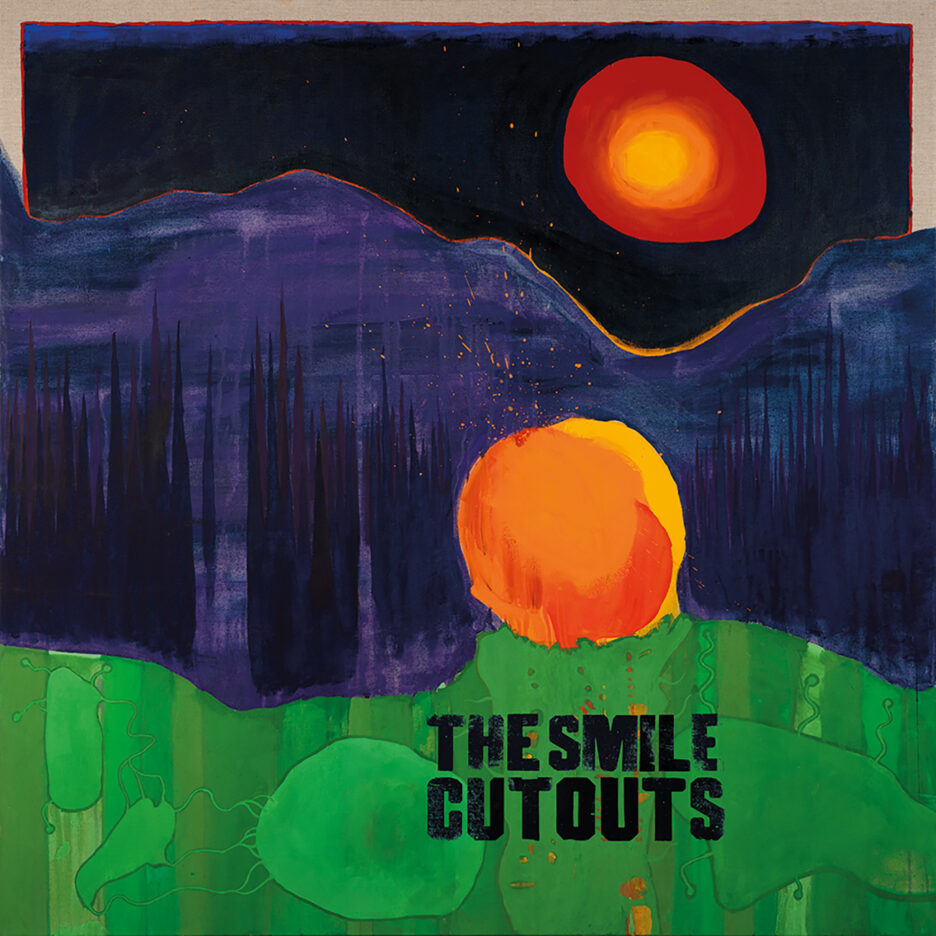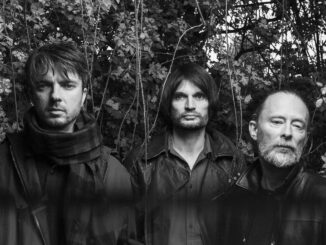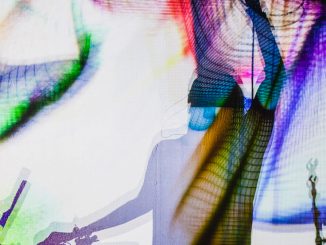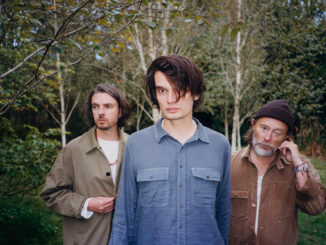The Smile’s third album, Cutouts, is their second release this year, continuing a prolific streak that began with A Light for Attracted Attention in 2022. The Smile, composed of Radiohead’s Thom Yorke and Jonny Greenwood alongside Sons of Kemet drummer Tom Skinner, has carved out a significant body of work in a remarkably short time.
Following January’s Wall of Eyes, Cutouts further showcases the trio in a creative zenith. The trio is releasing music at a pace that has some fans both exhilarated and wondering whether this output might dilute the impact of each album.
Frontman Thom Yorke hasn’t appeared this creatively invigorated since Radiohead’s Kid A and Amnesiac era. In The Smile, he and Greenwood have established a distinct, impressive catalogue that stands apart from their primary work. Jonny Greenwood has been vocal about his frustration with Radiohead’s slower creative process, describing The Smile as an outlet to release music that’s “90% as good and comes out twice as often.”
Given this near-relentless output, the question arises: Is Cutouts just a collection of leftover ideas from Wall of Eyes—fitting the title—or does it bring something new to the table? Fortunately, Cutouts stands independently, offering a potent blend of musical experimentation and sharp social commentary. If Wall of Eyes focused more on internal struggles, Cutouts broadens its lens to critique the fractured state of the world.
The album opener, “Foreign Spies,” immediately sets a tone of societal critique, combining the digital sonics of Yorke’s solo work (The Eraser, Amok) with urgent, politically charged lyrics. Its wonky synths and ethereal effects lay the groundwork for Yorke’s exploration of the widening gap between the haves and have-nots and the ironic lip service to individual freedom in a world rife with subjugation. It’s an ominous and powerful start, thematically setting the stage for the rest of the album.
“Instant Psalm” changes the vibe with a fusion of trippy R&B beats, sumptuous strings, and an off-kilter bassline, echoing later Beatles-esque pop experimentalism. Yorke reflects on the manipulation of thought and truth, offering a sobering meditation on the erosion of objective reality. This psychedelic sound is further explored in “Zero Sum,” where Yorke rails against the loss of originality in a world content with recycling old ideas. The track’s bass and guitar riff recall the experimental leanings of Amok, creating a hypnotic groove that belies its critical message.
“Colours Fly” is a standout track, blending a wicked bassline, punchy drums, and Middle Eastern-influenced guitar riffs. It’s a sonic rollercoaster, mixing psychedelic elements with a cacophony of chaos akin to Radiohead’s “The National Anthem.” Lyrically, it critiques the dangers of groupthink and celebrates the power of changing one’s mind, culminating in one of the album’s most potent moments.
The album’s second half maintains momentum with tracks like “Don’t Get Me Started,” a digital-heavy piece reminiscent of Yorke’s solo work, Tomorrow’s Modern Boxes. The track captures a world teetering on the edge, with conformity threatening to smother individual thought. “Tip Toe” slows the tempo with its heartfelt piano and lush strings, offering a deeply emotional plea for the outcasts and overlooked. At the same time, “The Slip” returns to jazz-infused, bass-heavy territory, continuing the album’s condemnation of societal small-mindedness.
The penultimate track, “No Words,” is a motorik gem laced with chaos. It recalls William Butler Yeats’ The Second Coming as Yorke paints a bleak picture of a world unraveling. The song’s alchemical mix of sonic dissonance somehow works in its favour, making it an album highlight.
Cutouts ends with “Bodies Laughing,” a haunting acoustic track that continues Yorke’s critique of a society distracted by trivial pleasures as the world descends into chaos. With its biting lyrics and sombre tone, the song serves as a fitting conclusion to an album that, much like Yorke’s previous work, offers no easy answers or optimistic takes.
Fans of Radiohead’s more uplifting moments in albums like In Rainbows or The King of Limbs may find Cutouts a darker, more pessimistic offering. The harmonic warmth is replaced by thematic bleakness, reflecting the global instability of recent years. However, while Cutouts may be sombre in tone, its musical brilliance shines through, offering enough unconventional splendour to make it a rewarding listen.
The Smile has become a laboratory for creative experimentation that shouldn’t work as well as it does, yet it continues to thrive. While the lingering question of Radiohead’s return remains unanswered, Greenwood’s philosophy of releasing music that’s “90% as good, twice as often” seems to be paying off for now. Cutouts cement The Smile’s place as a serious, long-term project whose output is impressive in quantity and quality.





Be the first to comment